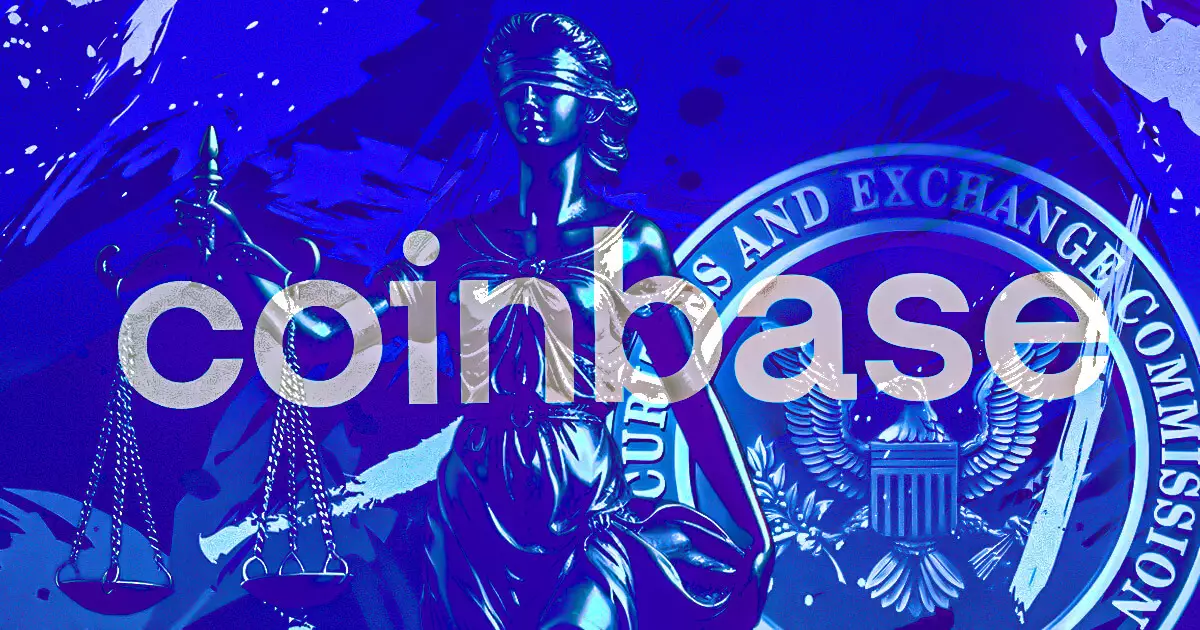In a significant twist within the cryptocurrency landscape, Coinbase has reportedly reached an agreement with the U.S. Securities and Exchange Commission (SEC) to have its enforcement case dismissed. This resolution is pending final approval from the Commission, but early reactions suggest it is already having an impact on the market, notably pushing Bitcoin’s value back over the $99,000 mark. While the settlement has been framed as a win for Coinbase, it also raises fundamental questions about the regulatory framework governing cryptocurrencies and the nature of enforcement actions taken by authorities.
The conflict emerged against a backdrop of heightened scrutiny from regulatory bodies, particularly as the SEC clamped down on various digital assets it classified as securities. Coinbase’s legal battle started when the SEC targeted the exchange, aiming to delist certain assets that Coinbase argued were not securities. This enforcement action prompted a pronounced backlash. Brian Armstrong, Coinbase’s CEO, characterized the SEC’s approach as a gross overreach of its regulatory mandates. He emphasized that the legal dispute was not merely about the company’s operational parameters but was emblematic of a larger struggle for the legal recognition and classification of digital currencies.
This settlement, if approved, will not only benefit Coinbase but could represent a pivotal moment for the entire cryptocurrency industry. It highlights a friction point between traditional regulatory frameworks and the innovative nature of digital currencies. Armstrong noted that the lawsuit was more than just a defense of Coinbase’s business model; it was about establishing a regulatory environment grounded in statutory law rather than discretionary interpretations by regulatory agencies. This distinction is crucial for industry participants who seek clear regulatory guidelines that can promote innovation without sacrificing consumer protection.
The resolution lacks any fines or alterations to Coinbase’s business model, which many might argue reflects an updated understanding of how crypto assets should be treated legally. By contesting the SEC’s stance, Coinbase may have opened doors for other firms to challenge similar regulatory edicts, ultimately leading to a clearer delineation regarding which assets are classified as securities.
Armstrong’s statements also invoked the political climate surrounding regulatory changes in the crypto space. He specifically credited the Trump administration for facilitating shifts in this complex narrative. By acknowledging the change in leadership at the SEC, particularly with the departure of Gary Gensler, Armstrong suggested that internal regulatory politics may have played a role in influencing this outcome. This connection brings broader political engagement into the dialogue about cryptocurrency regulations and hints that legislative changes may be on the horizon as a reaction to ongoing tensions between the crypto industry and regulatory bodies.
Though the settlement could alleviate some immediate pressures on Coinbase, it does not eliminate the broader uncertainties that still pervade crypto regulation. While industry stakeholders hail this resolution as a significant win, it is also viewed as a cue for legislative bodies to reassess the legal frameworks that govern digital assets. Perhaps this event will serve as a catalyst for more proactive legislative engagement aimed at creating a balanced regulatory framework that allows innovation to flourish while ensuring investor protection.
As market participants continue to analyze the implications of the settlement, they must remain vigilant about the evolving dynamics between regulators and crypto firms. The Coinbase case serves as a key reference point, marking a potential shift in the legal interpretations that surround cryptocurrencies. Emphasizing the importance of preserving a dialogue between regulatory authorities and the crypto sector, this development may assist in defining the landscape for future regulatory measures.
While the Coinbase-SEC settlement appears to provide immediate relief for the exchange and its customers, it also underscores the ongoing contention surrounding cryptocurrency regulation. Its long-term impacts will likely shape legal interpretations and market operations for digital assets going forward, making it a landmark moment in the quest for regulatory clarity in an evolving financial ecosystem.

